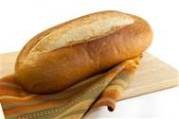
I bake bread most every weekend. The smell of fresh baked bread in the house is one of those pleasures that can only truly be experienced if you’ve had your own hands in the dough, rolling it out, kneading it, feeling its warmth. I don’t use a bread machine, but a big mixer and my own hands. I use my own vegetables (squash mostly) in the dough as well as the spent grain from the beer I brew. I do this for many reasons, but mostly the bread feeds me, but also and perhaps most importantly, my curiosity.
Baking bread is one of the human endeavors that separate us from other animals and bread is one of those few cooking endeavors that brings to life rather than takes life from the things that we cook (to paraphrase Michael Pollan [Cooked]). I’m not quite sure why, but bread-making is not only useful, educational and fun, but it is also as addicting as it is necessary. That first mouthful of warm, wheaty bread is a luxury; the taste is exquisite. But, it is not in the eating of the bread that the imagination takes flight, but rather in the making of the bread that mind finds solace.
There are hundreds if not thousands of recipes for bread that can be easily found, and I’ve tried a few, but the bread I bake is best when I simply poke my fingers in the dough before letting it rise the first time, adding flour or water as I see fit. The best bread I bake is that bread that I scoop out of the bowl and watch the filaments of gluten and protein strands stretch and break. Life from water, yeast and flour somehow gives life to mind, body and imagination. This is, realize, all symbolic for something greater than bread. I do bake bread, but I also garden, and am about to embark on beekeeping. These all symbolize the same concept: freedom.
I am often reminded by many that I tell these things to that “it doesn’t pay”, and that “why do it when it is so easy to ‘just go buy it’.” But to me, their words ring empty. I answer, “Why just go buy it when you can just do it yourself?” Their only answer seems to be that “It is easier.” But, I ask, why is “easier” better? Is it better bread? Do you learn from it? Are you freer? For a while I couldn’t understand why it seemed that so many people became defensive when I talked about doing things rather than buying things, but then it dawned on me: baking bread, keeping bees, gardening, brewing beer; doing things symbolizes what we all believe that we have, but also reminds us that we often don’t actually have it and how difficult it is to achieve.
Baking bread comes at a cost. Now that I bake bread, I want to make my own yeast strains, grow and thrash my own wheat; in short, become self-sufficient. I have learned that while “easy” comes at a cost, so does freedom. There are limits to what we can do, and there are limits to how free we can become. Aristotle defines a virtuous life as one lived intellectually with intention. This, he claimed, will lead the virtuous man to Happiness (Eudamonia), but in order to achieve this Happiness one must realize one’s limitations. In other words, the road to freedom is paved with many un-risen loaves, but of course you can always compost them!

